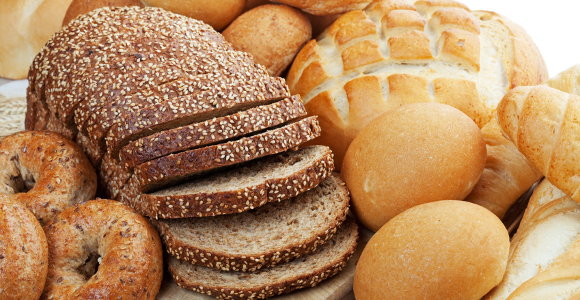Let’s look at Bad Food For Brain Function and a way forward!
The brain is probably the most important organ in your body. Although you can’t live without many others, the brain regulates all of them. The brain doesn’t just maintain your heart beating and your lungs breathing, it’s the repository of all that makes you. All your thoughts, feelings, and memories originate or reside in the brain. Apparently, keeping the brain healthy is very crucial for human productivity.
Like the rest of your body, the brain depends on food to function well. That’s why you may feel highly active after a healthy lunch. Healthy eating as a lifelong habit also slows the rate of cognitive decrease associated with aging and decreases the likelihood of developing dementia.
For peak mental function, include a wide variety of foods in your diet, as no one nutrient can provide everything your brain needs. and mentally sluggish on a junk-food diet. Include a broad range of ingredients in your diet for peak mental function, as no nutrient can provide all your brain requirements.
On the other hand, however, some foods can damage your brain. Consuming these foods often increases the likelihood of you having confusion, low mood, and slowed reaction times. In a vicious cycle, a brain without proper diets is most likely not to make sound decisions and judgment.
If you know you have some bad habits, it is time to start scaling back. Your brain won’t like a massive dietary overhaul all at once, and even though you know it’s the right choice, you’ll struggle to maintain it. Instead, remove the following 7 items from your diet one by one, making a gradual shift that will protect the health of your brain for the long haul. The easiest one to quit is probably.
Bad Food For Brain Function – A list To Note…
Refined Carbs
Products produced from processed grains are refined carbohydrates. They may not necessarily taste nice, but in your body, they break down very rapidly into sugar. That’s because of the method of refining strips from the initial grain all the fiber and nutrition. A meal rich in refined carbs represents a high glycemic load that spikes your blood sugar.
Refined carbs cause all the same issues as if you had eaten straight sugar, including memory impairment, inflammation, and a higher risk of developing dementia. Studies have shown that children who consume diets high in refined carbohydrates score lower on nonverbal intelligence tests. And elderly people who take in more than 58% of their daily calories in refined carbs have twice the risk of mental impairment and dementia than those who eat more whole grains, fruits, and vegetables.
Trans Fat
Fats of any kind are bad for your body. But the particular kind of fat foods that can damage your brain is called Trans Fat. Trans fats can damage your brain faster than you think. They are among the natural produce of animals including meat and dairy. The trans fats produced by animals are not as problematic as the industrial products that is pumped into all sorts of packaged foods.
Otherwise known as hydrogenated oil, people who eat a lot of trans fat in the form of margarine, store-bought baked goods, chips and crackers, frozen and canned meals, and creamy beverages are at a greater risk for Alzheimer’s and dementia. Studies have shown that high consumption of trans fats also leads to earlier cognitive decline, lower brain volume, and poorer memory.
Sugary Drinks
Sugary drinks such as soda, sports drinks, energy drinks and even fruit juice have little or no dietary importance for the body. Regular consumption of sugary drinks can lead to a whole lot of physical impairments, including type 2 diabetes, high blood pressure, high cholesterol, and yes – Alzheimer’s disease or dementia.
A high intake of fructose, a mega-concentrated sweetener that’s found in many sugary drinks, has been shown to reduce learning ability, memory, overall brain function, and the formation of new neurons in the brain. It may also lead to increased inflammation in the brain, which negatively affects all types of brain function.
Processed and Packaged Foods
Processed and packaged products remove significant nutrients from the entire food and replace it with sugar, fat, and salt. Most modern diets are, based on comfort and fast food over slow-cooked homemade meals. This is because individuals are busy and sometimes making your own sauces, dressings, pastas, and baked products are somehow difficult.
But, it is important to cook with whole nutritious foods as often as you can, because the modern diet often causes accumulation of fat around the vital organs. This, in turn, is associated with damage to the brain tissue and a reduction in the brain’s volume. It may also cause disruptions to the blood-brain barrier, the membrane that is responsible for protecting the brain from harmful substances.
Alcohol
You are probably not surprised to see alcohol among the foods that can damage the brain. Many people do some dumb things under the influence of alcohol even when they probably know the implication of alcohol intake.
However, getting tipsy every once in a while probably won’t cause permanent damage, but alcoholism and bouts of binge drinking absolutely can. Chronic consumption of alcohol tends to shrink the brain and disrupt the neurotransmitters that your brain uses to communicate. Alcoholics also often experience a vitamin B1 deficiency, which can lead to the development of Korsakoff’s syndrome. That syndrome is responsible for severe brain damage that causes memory loss, confusion, unsteadiness, and intermittent loss of eyesight.
Fish High in Mercury
In general, fish is a good complement to your diet. The saturated fat content is low but though contains healthy omega-3 fatty acids, vitamin B12, zinc, iron, and magnesium. Some fish, however, are particularly high in mercury, a contaminant of heavy metals and neurological poison. Mercury remains stored (including human) in animal tissue for a long time.
Research has shown that long-lived and predatory fish tend to have the largest mercury concentration in their flesh. This is because they consume other fish that contain reduced concentrations of mercury as long as they live. Over a lifetime, these fish can accumulate mercury levels of 1 million times the concentration in the water they swim in. It is best to avoid or seriously limit your consumption of tuna, swordfish, orange roughy, king mackerel, shark, and tilefish to prevent disruption of your brain’s neurotransmitters.
Aspartame
Unfortunately, it is not possible to avoid the harms of too much sugar by replacing it with an artificial sweetener – especially not aspartame. While producers of this sugar guarantee that it is safe, several studies have linked aspartame to behavioral and cognitive problems. As a chemical stressor, it can cause deleterious effects on the ability to learn and regulate emotions.
In one study, just 8 days of a high-aspartame diet cause participants to score lower on mental tests and feel more irritable and depressed to boot. Another study revealed that people who drink a lot of diet soft drinks, which replace the sugar with artificial sweeteners, have an increased risk of dementia or stroke. For now, the FDA says aspartame is safe but also mandates warning labels on products that contain it.
Takeaway
It’s probably not new that during the course of your life, your diet plays a huge role in brain health. When your risk of Alzheimer’s and dementia rises, avoid consuming these 7 foods that can damage your brain. Doing so can enhance your cognitive skills every day as well as in the future. The healthier whole foods you can eat, the better your brain will be shielded. And a clear, happy brain will also remind you how much good you do for your body. Ultimately, being able to look back on your lives and still have all your excellent memories is worth it.








Leave a Reply